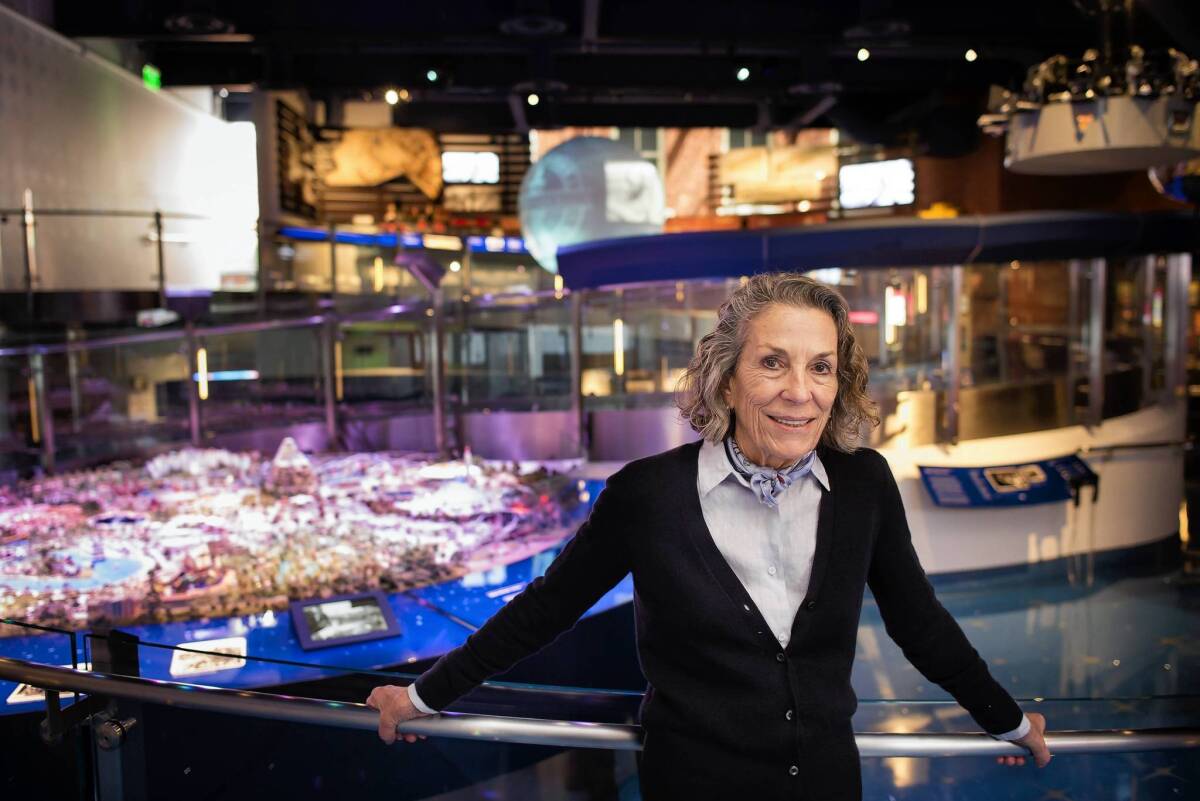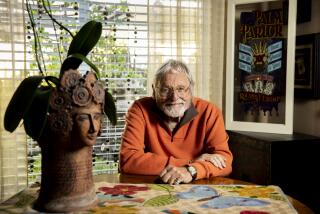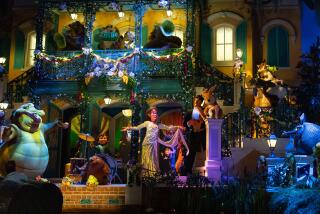Diane Disney Miller reflects on a Disney Hall turning point

These days, the building on Diane Disney Miller‘s mind is San Francisco’s Walt Disney Family Museum, opened in 2009. She bubbles with enthusiasm over this recent tribute to her father, Walt, housed in a former Army barracks building in the Presidio.
Still, in a recent conversation, it was easy for Miller, 79, to hark back a decade to the opening of the L.A. structure that had dominated her life and architecture headlines around the world: Walt Disney Concert Hall, a project instigated by a $50-million gift from her mother, Lillian Disney. “It turned out so well, it’s a place that people are thrilled to be in,” she says. “And it gave me the courage to do the museum.”
You won’t see Miller’s name anywhere on the concert hall’s undulating exterior or even inside the building. (She admits with a laugh that she was a little skeptical when Frank Gehry told her he envisioned exterior walls of polished steel.) But there was a time when Miller, the surviving sister of the Disneys’ two daughters, held the future of the hall in her reluctant hands.
TIMELINE: Walt Disney Hall through the years
That time was 1997, when the project was past its fundraising problems and finally back on track. Then crisis hit: Gehry said he would walk off the project when Disney Hall leaders tried to force a plan that would take the job of completing working drawings out of the hands of the architect’s firm. Project leaders including then-Mayor Richard Riordan and billionaire philanthropist Eli Broad threw their weight behind the plan because they believed Gehry’s firm was too inexperienced to execute the drawings for Disney Hall’s all-curves design, even though the firm had executed drawings for the similarly curvy Guggenheim Museum in Bilbao, Spain.
The normally reticent Miller stepped forward and played her trump card. She mandated that the approximate $20 million left from her mother’s original gift could not be used unless Gehry’s firm remained in charge of the working drawings.
“She was the turning point, definitely,” Gehry says now. “I was devastated. I had left the project, and in the next day or two, I got the call” that Miller had made the crucial decision not to go forward without him. “She’s an amazing lady and continues to be — for the project, for classical music and for the arts.”
Miller, speaking from her family winery Silverado Vineyards in Napa, Calif., recalls the crisis moment as “very depressing — it was, ‘What to do? Where to go?’” Not surprisingly, she sidesteps taking credit for the turnaround. “I think it was the support of the architecture establishment of the world, and the Philharmonic — the music world that wanted to see this hall, wanted to see Frank Gehry build this hall.”
INTERACTIVE: Disney Hall inside and out
Her action solidified a friendship with Gehry that endures to this day. She lauds the architect for being able to translate Lillian Disney’s homespun, traditional tastes into a landmark of contemporary architecture. Miller recalls that her mother once told her: “I want it to look like a little brick church, covered with vines.” Miller dutifully relayed this information to Gehry and one of the project’s leaders, developer Fred Nicholas.
“Fred Nicholas said, ‘It ain’t going to look like that,’” Miller says with a chuckle. “But Frank said: ‘I know exactly what she means, she wants it to be warm and welcoming’ … he understood her, he really did.” Gehry named the colorful pattern of the concert hall’s seats and carpet “Lillian.” Lilly (as she was called) Disney died in 1997 at age 98.
Standing in front of shiny Disney Hall on a summer day, “it can get really hot,” Miller admits. Other than that, she has no complaints. “Frank built a hall for the music, and for the musicians, not for architects and critics,” she says.
“I wanted something that would bear my father’s name, that would come from his wealth but not be commercial. That would be just a wonderful thing for the city, for the spirit, for the soul. I think we achieved that. When I say we — Frank has achieved that.”
More to Read
The biggest entertainment stories
Get our big stories about Hollywood, film, television, music, arts, culture and more right in your inbox as soon as they publish.
You may occasionally receive promotional content from the Los Angeles Times.










